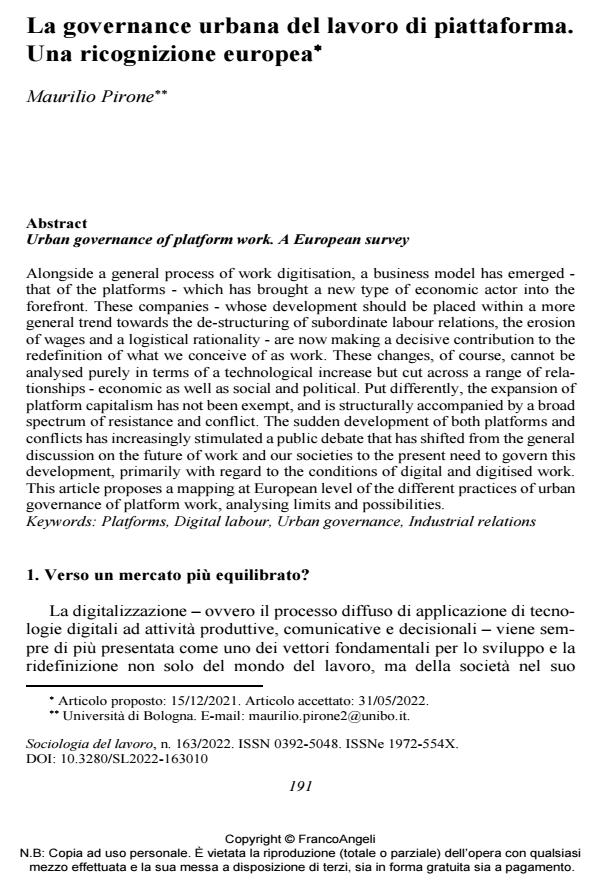Urban governance of platform work. A European survey
Journal title SOCIOLOGIA DEL LAVORO
Author/s Maurilio Pirone
Publishing Year 2022 Issue 2022/163
Language Italian Pages 16 P. 191-206 File size 225 KB
DOI 10.3280/SL2022-163010
DOI is like a bar code for intellectual property: to have more infomation
click here
Below, you can see the article first page
If you want to buy this article in PDF format, you can do it, following the instructions to buy download credits

FrancoAngeli is member of Publishers International Linking Association, Inc (PILA), a not-for-profit association which run the CrossRef service enabling links to and from online scholarly content.
Alongside a general process of work digitisation, a business model has emerged - that of the platforms - which has brought a new type of economic actor into the forefront. These companies - whose development should be placed within a more general trend towards the de-structuring of subordinate labour relations, the ero-sion of wages and a logistical rationality - are now making a decisive contribution to the redefinition of what we conceive of as work. These changes, of course, can-not be analysed purely in terms of a technological increase but cut across a range of relationships - economic as well as social and political. Put differently, the ex-pansion of platform capitalism has not been exempt, and is structurally accom-panied by a broad spectrum of resistance and conflict. The sudden development of both platforms and conflicts has increasingly stimulated a public debate that has shifted from the general discussion on the future of work and our societies to the present need to govern this development, primarily with regard to the condi-tions of digital and digitised work. This article proposes a mapping at European level of the different practices of urban governance of platform work, analysing limits and possibilities.
Keywords: Platforms, Digital labour, Urban governance, Industrial relations
Maurilio Pirone, La governance urbana del lavoro di piattaforma. Una ricognizione europea in "SOCIOLOGIA DEL LAVORO " 163/2022, pp 191-206, DOI: 10.3280/SL2022-163010